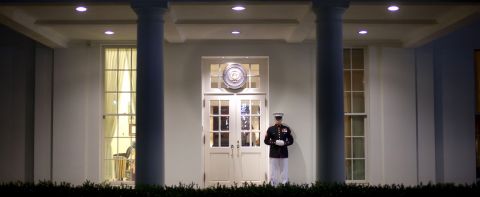

When approaching the bridges to the nation’s capital, someone joining an agency, legislative staff, or NGO cannot help but notice the Washington Monument. This landmark does not depict the figure of the leader it honors, who commanded the revolutionary forces and then personified a civilian chief executive. Its simplicity and prominence reflect the unifying and transcendent nature of his leadership. The government and its military forces remain necessarily intertwined in public administration, but the cultures of service and leadership are increasingly separated in American society.
The military largely is drawn from a population that is not as well represented in government. Few of today’s civilian leaders, academics, and other opinion shapers have had direct military experience, and increasingly few are even related to someone who has served.
As columnist Mark Shields said several years ago, “Probably nobody at any Washington dinner party tonight–liberal or conservative–personally knows any enlisted man or woman now defending the nation.” Yet civilian leaders deploy the military to implement national policies for fighting wars, providing security and protecting commerce, responding to emergencies and humanitarian crises, stabilizing embattled regions, and conducting diplomacy.
Public service leaders will benefit from a better understanding of the military and from the experience of veterans with whom they work.
- Veterans may have been responsible for many lives and have made weighty decisions under stress.
- They may have managed highly sophisticated equipment and huge supply chains.
- They will have attended leadership schools, been mentored in their leadership development, and been regularly scrutinized for their leadership traits and the performance of those whom they have led.
This experience may not always smoothly translate beyond the military, as missions may not be so clearly defined and there likely are different kinds of hierarchies and accountability mechanisms. But essential military leadership principles do not sound much different than what is described in public administration—such as a focus on the mission, pursuit of professional knowledge, and sincere interest in the development of others. Valuable opportunities are lost when organizations are not intentional about tapping into this wealth of leadership thinking and experience.
The UNC MPA program is taking one small step in this direction with a new course offered in the fall of 2015. Topics will include a study of leadership as taught and demonstrated in the services and how it translates to leadership in the government and non-profit sectors, and issues concerning the transition of military leaders to civilian management and leadership roles.
